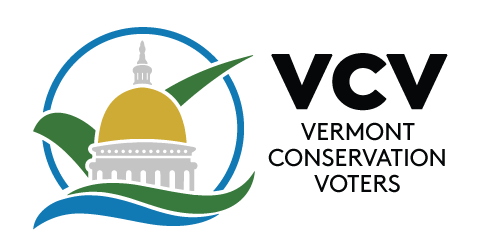Digital Scorecard gives voters easy access to legislators’ voting records on climate change, water quality, and other key environmental issues addressed by the 2015-2016 Legislature
Montpelier, VT – Today, Vermont Conservation Voters (VCV) released a new, interactive 2016 Environmental Scorecard. The digital Scorecard is a tool developed by VCV to help Vermonters track legislators’ voting records on key environmental issues in the latest legislative biennium.
“The legislative process can be complicated,” said Lauren Hierl, political director for Vermont Conservation Voters. “Our Environmental Scorecard highlights the most significant environmental votes from the past legislative session — and our new digital Scorecard makes it easier for Vermonters to find out how their legislators are voting.”
Hierl added, “Vermont is facing serious environmental challenges from climate change to clean water to changing land use patterns. The Scorecard helps Vermonters see which legislators are taking the tough votes needed to meet these challenges.”
The digital Scorecard enables Vermonters to easily find their legislators using an enhanced search feature, review legislative profiles and voting records, link to concise bill descriptions, and directly contact their elected officials. The interactive Environmental Scorecard is hosted at VCV’s newly updated website – vermontconservationvoters.org.
The votes included in this year’s Scorecard were issues highlighted in VCV’s annual Environmental Common Agenda of legislative priorities: a list of top-tier goals developed in collaboration with the state’s leading environmental groups. The major priorities this biennium included the establishment of a cutting- edge renewable energy standard, thoughtful deployment of clean energy across the state, and the creation of a Vermont Energy Independence Fund with resources generated by putting a price on carbon pollution. Other top-tier priorities included cleaning up Lake Champlain and other waters across the state, and better policies to maintain healthy forests.
Many of these priorities received statewide attention in 2015 and 2016, and in some cases significant legislative action was taken. In 2015, the legislature enacted a major water quality bill, passed legislation establishing an innovative renewable energy standard, and more. In 2016, a balanced renewable energy siting bill was enacted, along with forest integrity legislation, better protections for threatened and endangered species, and new tools to identify and address toxic chemical contamination in drinking water.
“Our democracy works best when Vermonters are engaged, and that’s why I’m excited to offer this new digital Environmental Scorecard to help people more easily monitor and interact with their elected officials,” added Hierl.
Click here to check out the 2016 Environmental Scorecard.
